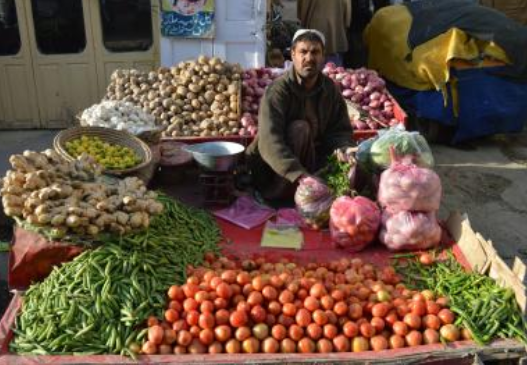Business
Pakistan's economy on edge of precipice, warns World Bank

Islamabad, Sep 23
Pakistan is in its tipping point crisis where it should decide to remain a laggard with 40 per cent population living below the poverty line under elite capture and policy decisions driven by strong vested interests of military, political and business leaders or change course to take off for a brighter future, local media reported.
This candid warning came from the World Bank ahead of the new election cycle for the upcoming government to make early choices while making it clear that international lenders and development partners could only advise with international experiences of successes and some financing but hard choices and course correcting decisions could only be taken within the country, Dawn reported.
"This may be Pakistan's moment in making policy shifts," said Najy Benhassine, Country Director for the World Bank in Pakistan, at a news briefing while releasing a set of policy notes for debate and discussions for finalisation before the new elected government comes in, Dawn reported.
He said Pakistan was in the middle of a human resource capital and economic crisis. "Policy decisions are heavily influenced by strong vested interests, including those of military, political and business leaders," reads an overview of the 'Reforms For a Brighter Future: Time to Decide' that Mr Benhassine released.
He said Pakistan had been facing numerous economic hardships including inflation, rising electricity prices, severe climate shocks, and insufficient public resources to finance development and climate adaptation — when the country was among the most vulnerable to climate change impacts, Dawn reported.
Pakistan's human development outcomes lag well behind the rest of South Asia and are roughly equivalent to those in many Sub-Saharan African countries with the costs disproportionately borne by girls and women while close to 40pc of children under five years of age were stunted and had the largest number (20.3m) of out-of-school children in the world, Dawn reported.
Its growth model has resulted in periodic balance of payments crises driven by unsustainable fiscal and current account deficits that necessitated subsequent painful contractionary adjustments, slowing growth, reducing certainty and undermining investments.

10 hours ago
PM Modi moots IBSA Fund for climate resilient agriculture at Johannesburg meet

10 hours ago
Piyush Goyal conveys PM Modi's wishes to Netanyahu, highlights progress in trade dialogue

10 hours ago
INS Sahyadri, Australian Navy's HMAS Ballarat participate in 'AUSINDEX' in Northern Pacific

10 hours ago
PM Modi meets his Japanese counterpart; bilateral cooperation discussed

10 hours ago
Lee vows to host G20 summit in 2028 with 'profound sense of responsibility'

10 hours ago
PM Modi, South African Prez Ramaphosa push for enhanced trade, tech and Global South voice

18 hours ago
G20 Johannesburg summit calls for improving global governance

18 hours ago
EAM Jaishankar speaks to Ukrainian FM, discusses latest conflict-related developments

18 hours ago
PM Modi holds significant discussions with world leaders during Jo'burg G20 Summit

18 hours ago
US says Russia-Ukraine peace draft made with Moscow's 'input'

18 hours ago
Ukraine, US to hold consultations on peace plan in Switzerland

18 hours ago
Houthi court sentences 18 Yemeni UN aid workers to death for 'spying for Israel'

18 hours ago
Justice Surya Kant to take oath as 53rd CJI tomorrow






















